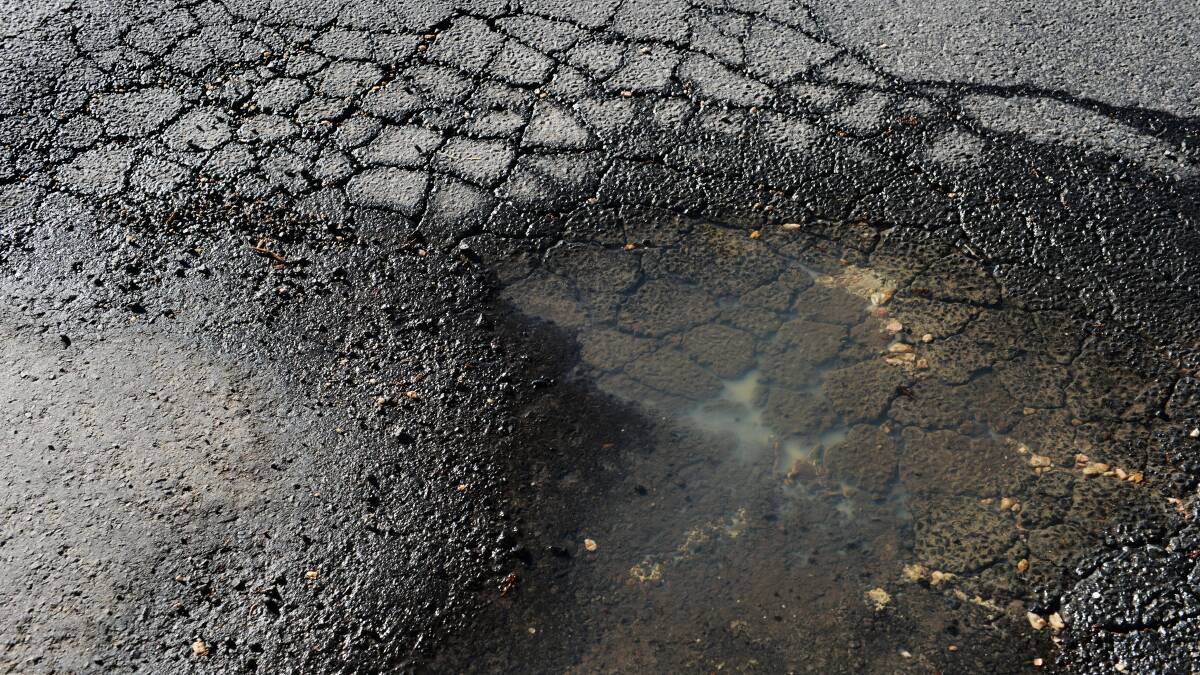The floods may have subsided from last week’s heavy rain but as many Ballarat drivers have realised the problems could be just beginning. While damage to private property was minimised the longer lasting impacts of a wet season, is the damage done to roads. Across Ballarat thousands of new potholes have appeared.
Subscribe now for unlimited access.
$0/
(min cost $0)
or signup to continue reading
The cause is invariably the same; water percolates under the asphalt or into old holes and every subsequent impact particularly from heavy traffic grinds the surface to a shattered mess. Already motorists are complaining about damage to their cars. This may well be the first of many.
What we are seeing is a far bigger problem due to the adversity of the circumstances. These fissures and wheel- crunching maws are appearing faster than councils can deal with. With even more rain on the way this week, the window for rapid repairs is probably grown even narrower
As a result City of Ballarat chief executive Justine Linley has suspended set response time frames for road repairs outlined in council’s road management plan.
That seems like a clear signal that the problem is not going away and drivers must take upon themselves the responsibility of driving to conditions.
In the longer term one of the wider problems is the sheer cost these escalated repairs will mean to council.
VicRoads oversees the major arterials like Sturt and Gillies and these high traffic roads are taking a hammering. Doubtless the State Government body has its work cut out for it but where does that leave the myriad of local roads and less well-resourced councils in an age of rate caps? And if it seems bad in Ballarat spare a thought for less affluent councils like Moorabool ,Hepburn or Golden Plains who have even broader road networks; in many cases carrying agricultural truck traffic. It is going to be a very long and costly spring and even summer of repairs.
Announcements that both State and federal Governments have made funding available form Natural Disaster Relief and Recovery Arrangements will no doubt be welcomed particularly in townships like Skipton, Charlton and Coleraine hardest hit by the deluge. But the bigger picture here is the ability for all local government o meet the demands of basic infrastructure without any perceptible increase in revenue.
It will pay to take care on the roads until a solution can be found.


